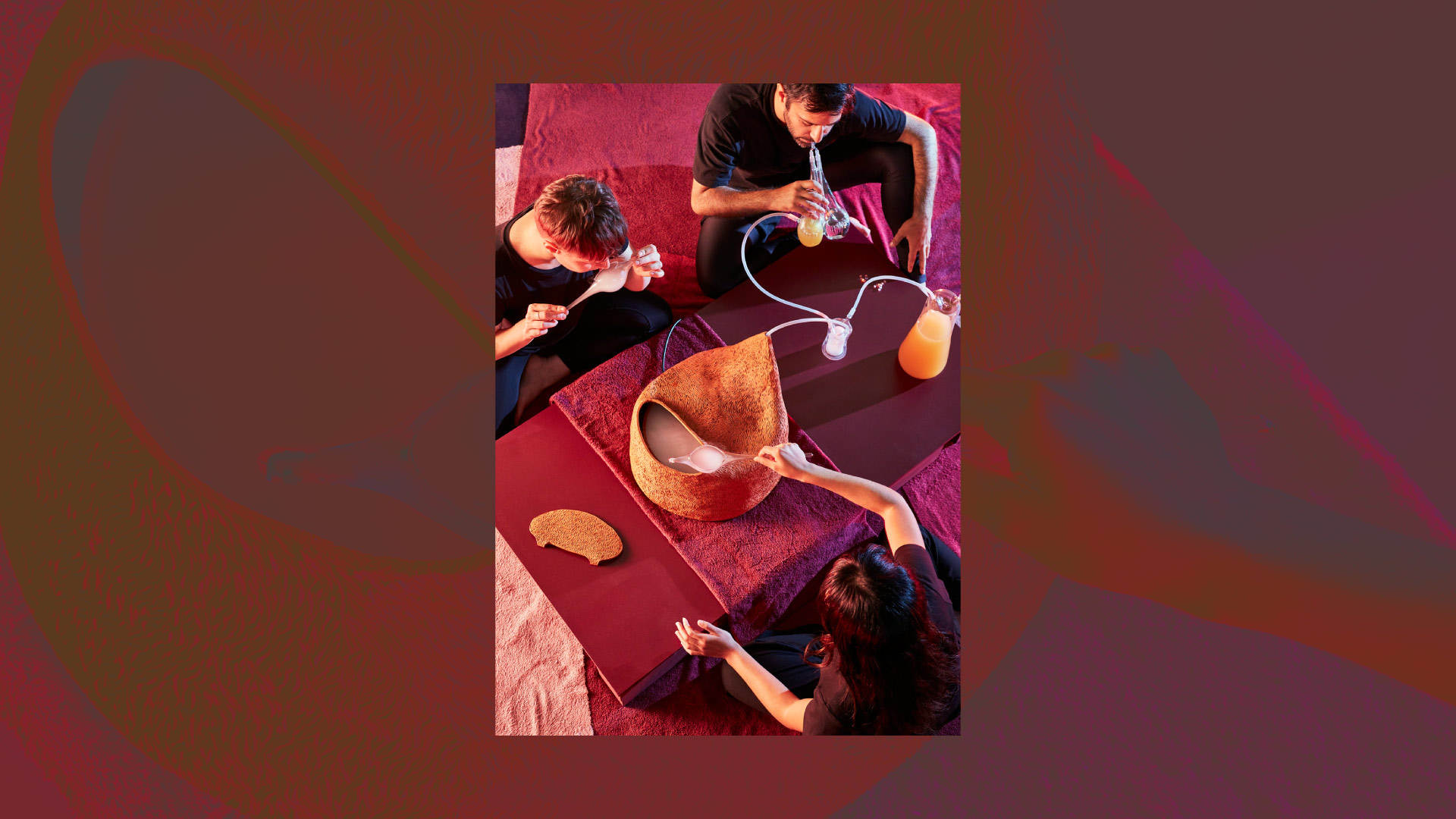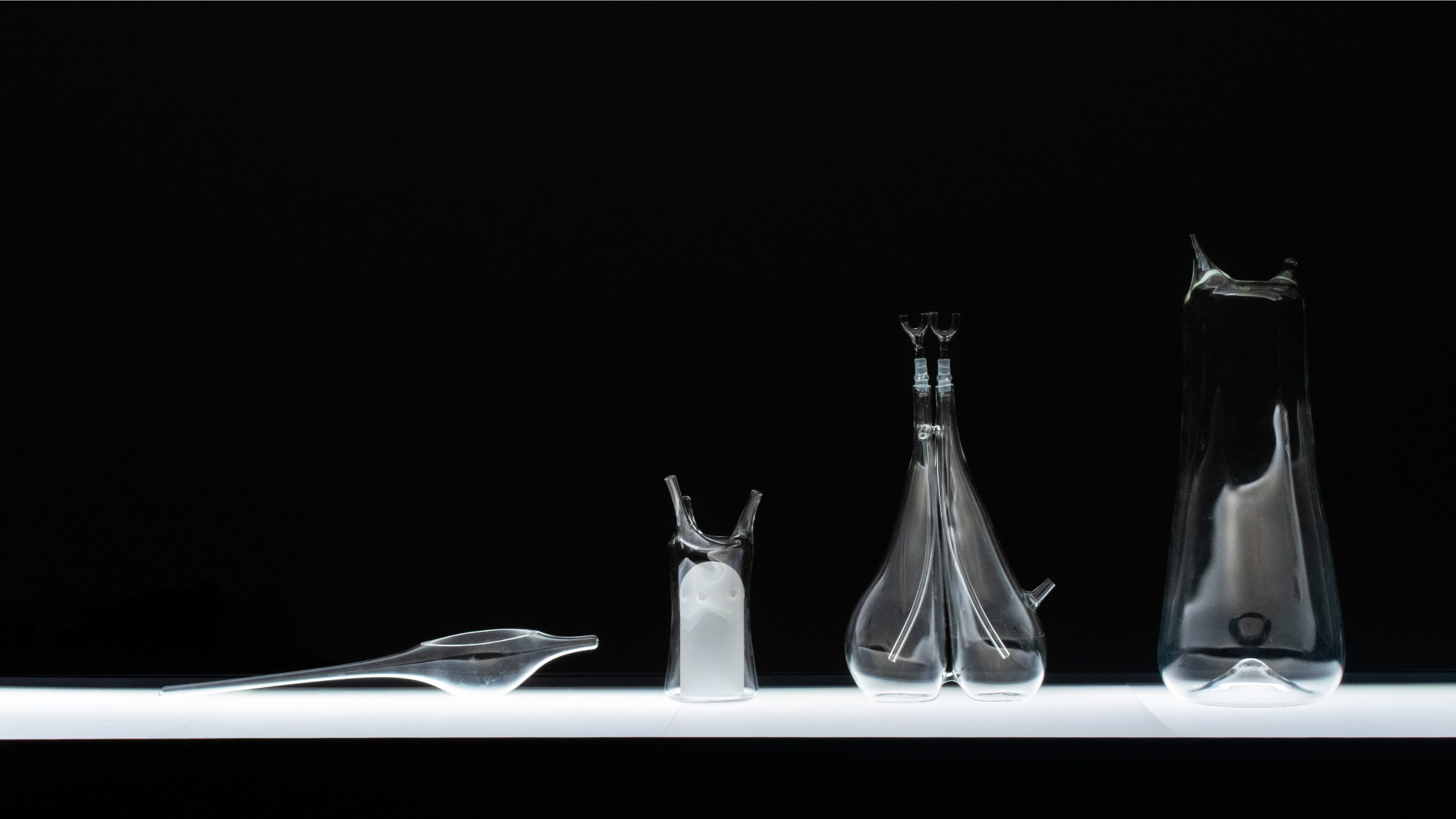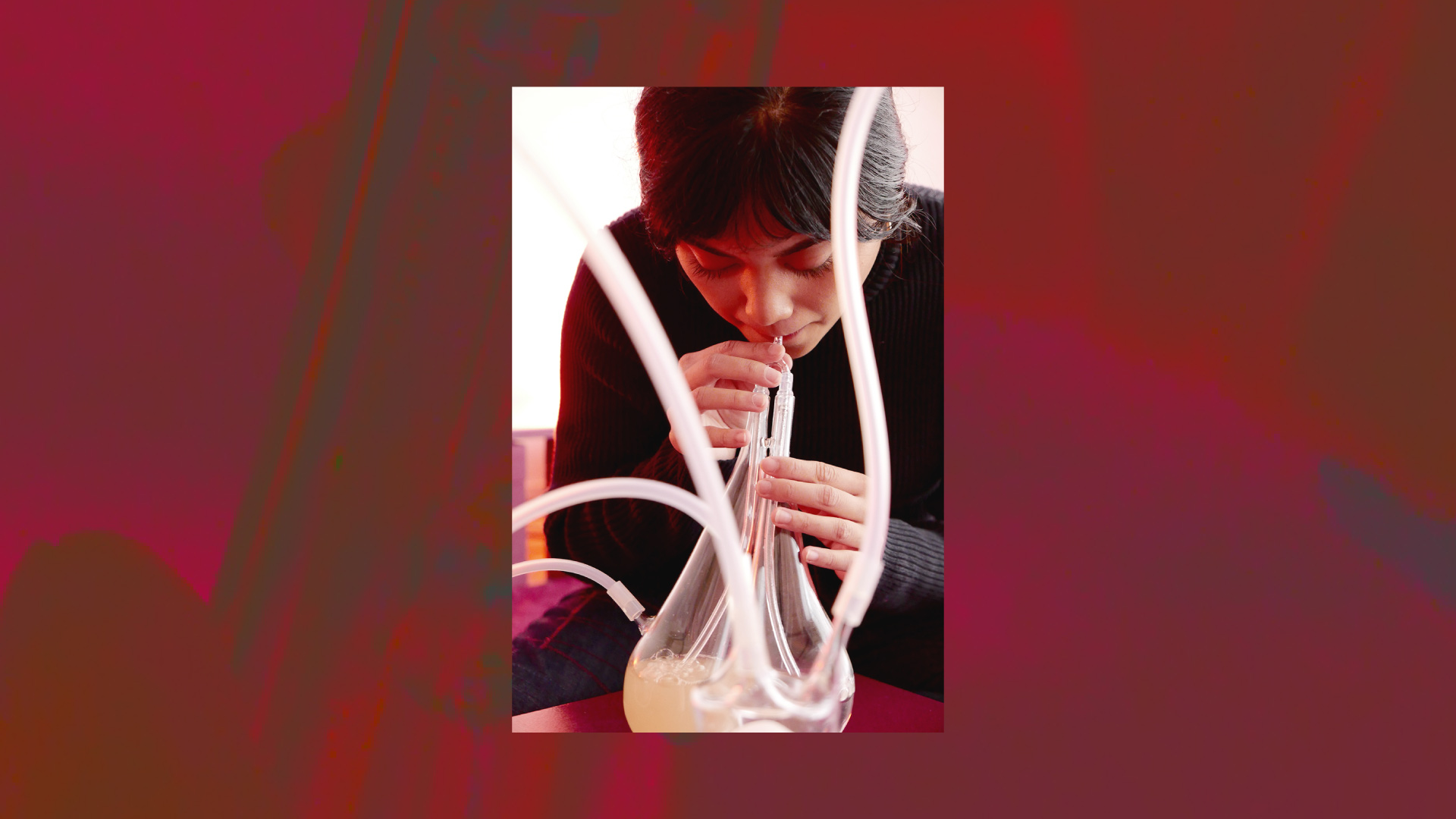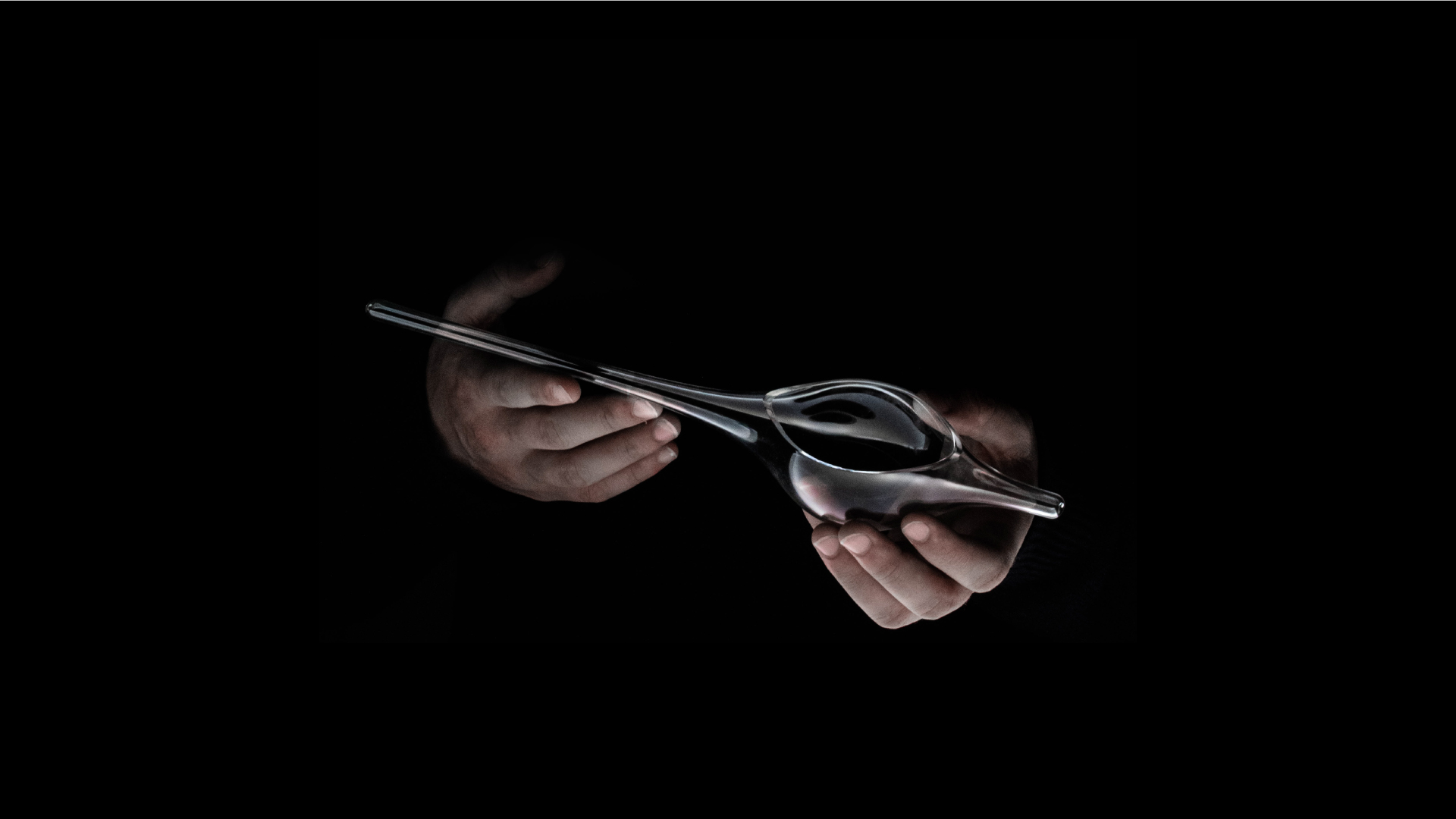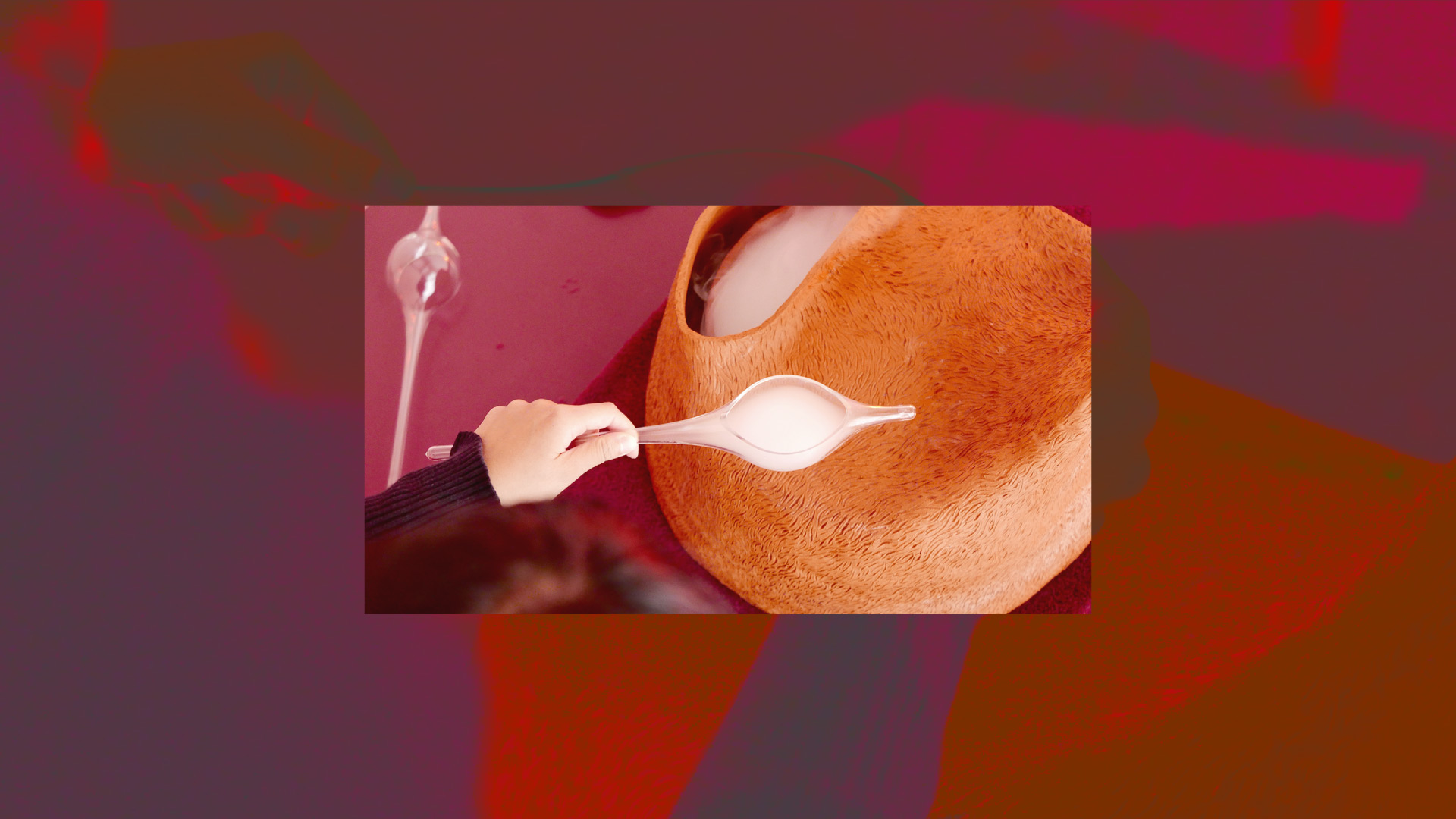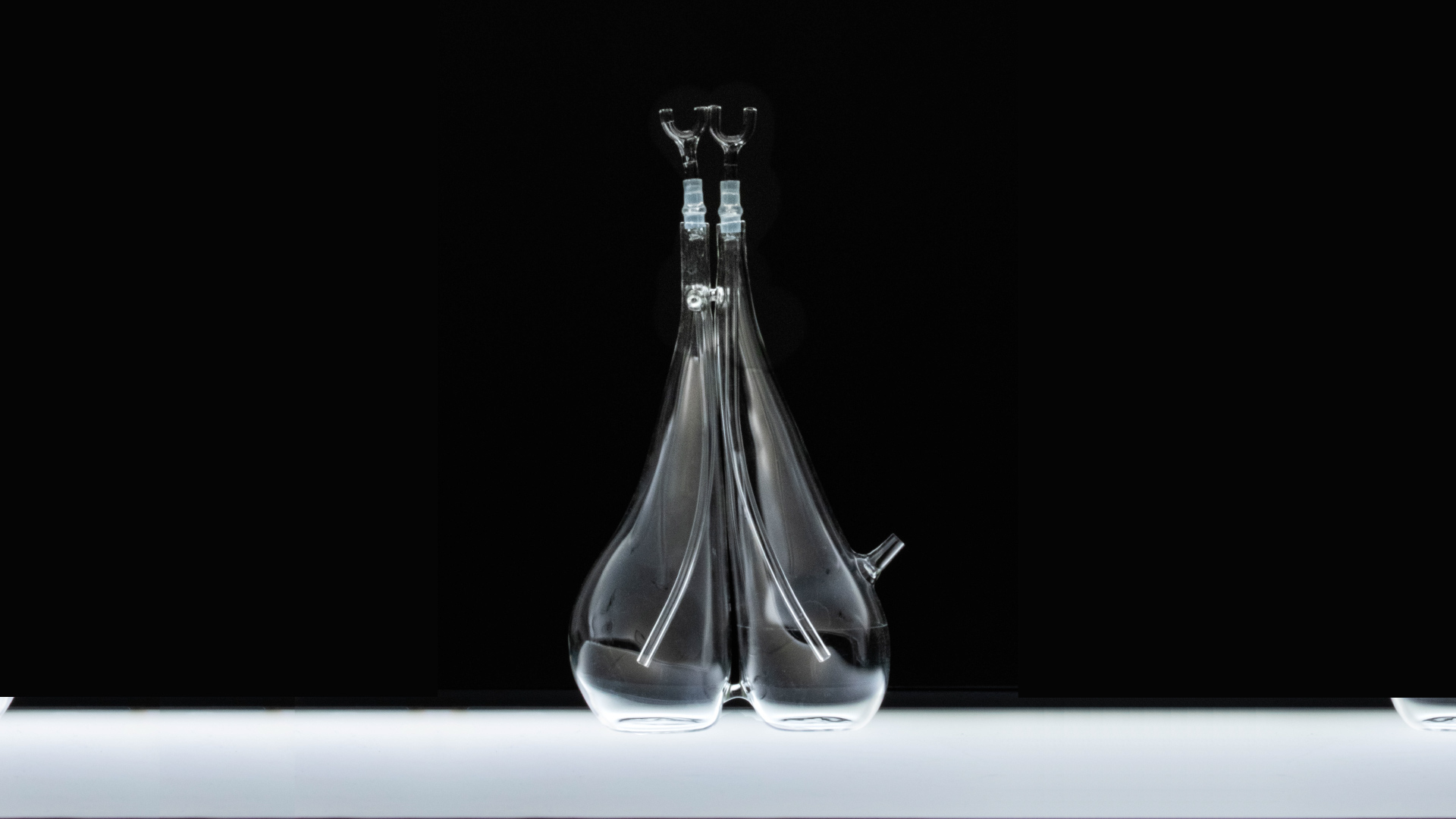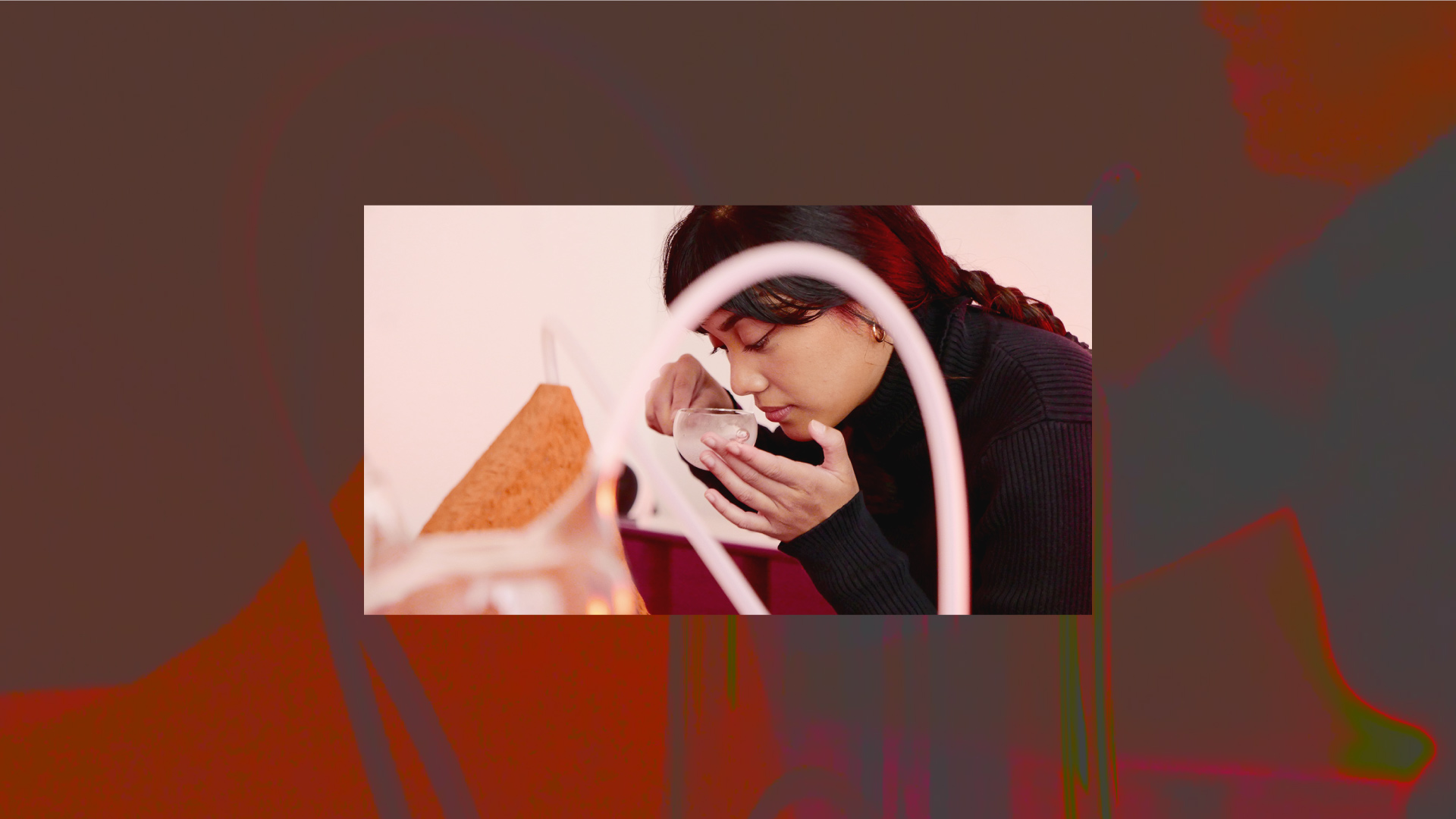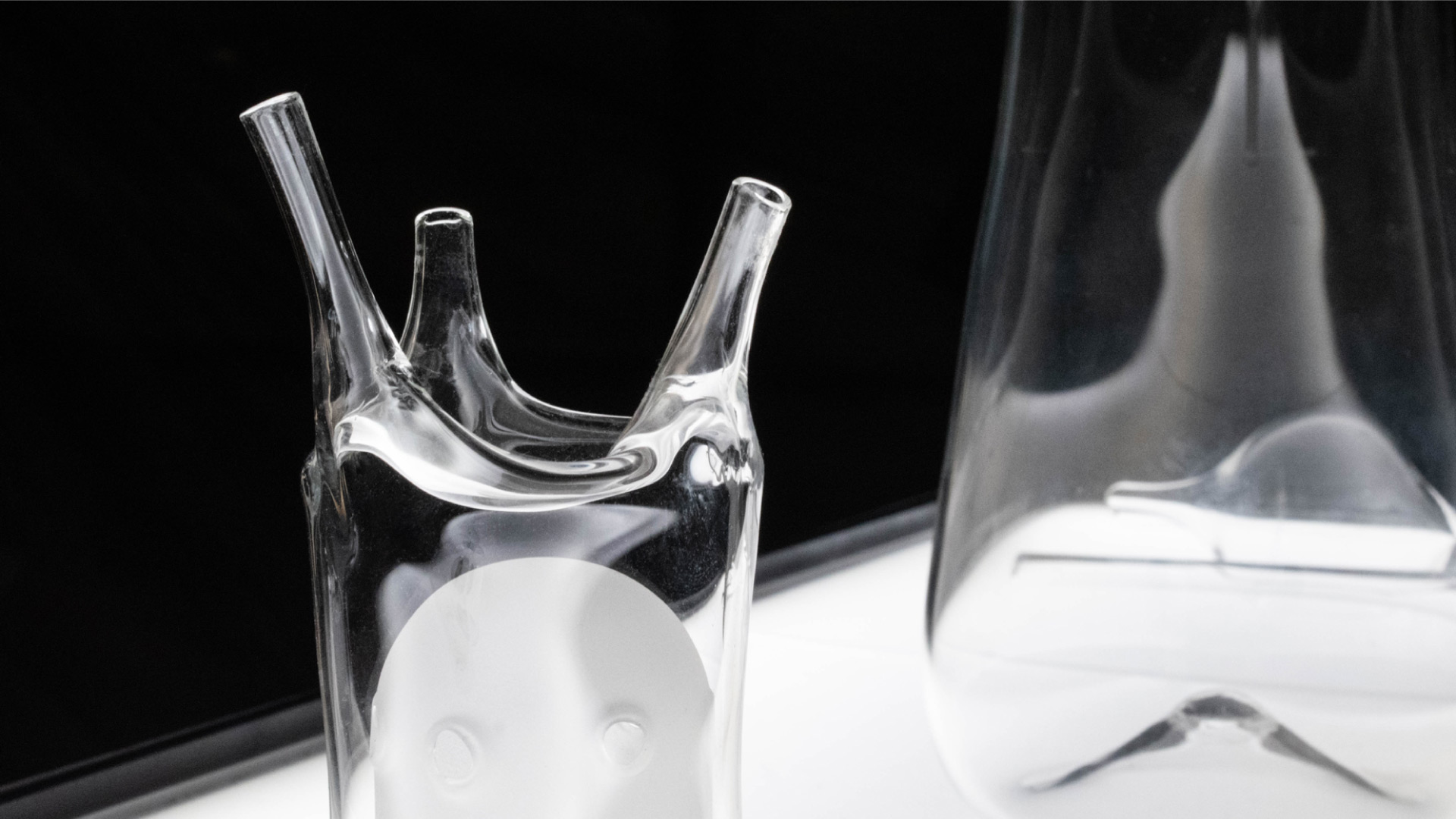co-healing: an institutional reform for caring with reimagines how communities can enact modes of care to prevent and treat multiple illnesses by positioning the microbial body – the micro-organisms that live with, on and in us – as the primary locus of care and people as co-producers of sensorial medicine. it seeks to reform the paternalistic, depersonalised format of modern westernised medicine with a collectivised and embodied practice of health.
by enacting rituals of microbial grooming, a co-healer acts as both caregiver and care receiver. articulated around tools for exchanging microbial bodies, the rituals facilitate a medical experience that is social and sensorial, enabling the safe sharing of the microbiota from the skin, lungs, mouth and vagina. the lung microbiome exchange tool was developed in collaboration with maxime-antoine tremblay, medical microbiologist at rosemont hospital and ad waterschoot, scientific glassblower at tu/e.
this project was nominated for the gijs bakker ward 2020 and received a cum laude and best thesis award at the design academy eindhoven.
by enacting rituals of microbial grooming, a co-healer acts as both caregiver and care receiver. articulated around tools for exchanging microbial bodies, the rituals facilitate a medical experience that is social and sensorial, enabling the safe sharing of the microbiota from the skin, lungs, mouth and vagina. the lung microbiome exchange tool was developed in collaboration with maxime-antoine tremblay, medical microbiologist at rosemont hospital and ad waterschoot, scientific glassblower at tu/e.
this project was nominated for the gijs bakker ward 2020 and received a cum laude and best thesis award at the design academy eindhoven.
